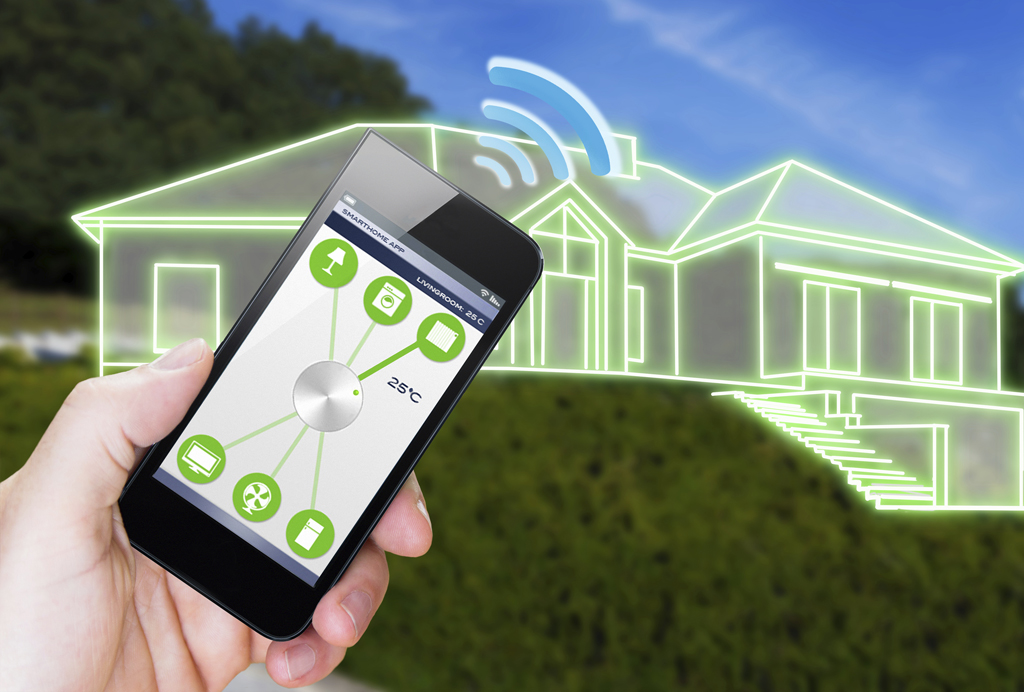Buying a home soon? You may want to pay close attention to how smart it is.
By Erik J. Martin
Content That Works
Folks who want to up their IQ often go to college and load up on knowledge. But homeowners who want to increase their dwelling’s intelligence simply need to load up on the right smart home features. And increasingly more people are doing exactly that.
Almost half, 45 percent, of 4,000 U.S. adults polled either own smart home technology or plan to invest in it in 2016, according to a Coldwell Banker Real Estate survey.
More than half, 54 percent, said they would buy or install smart home products if it would speed the sale of their home.
As for the smart home capabilities currently most in demand, security systems (voted most important by 46 percent), smart thermostats (45 percent), and lighting automation (36 percent) are the most desired features, per a recent Realtor.com study. The top five markets for smart home tech: Phoenix, Dallas, New York City, Miami and Los Angeles.
Adding the right smart home technology to your home or insisting on such features in your next property is worth the expense and effort, especially from a real estate perspective, according to experts.
“Buyers now are willing to pay more and lean toward purchasing a smart home, while sellers are seeing smart home technology as an easy investment that will give their home a competitive advantage in a saturated market,” Danny Hertzberg, sales associate for Coldwell Banker Residential Real Estate in Miami Beach, says. “A smart home is also attractive to buyers because it makes life easier, it’s cost effective and convenient, and it can save a considerable amount of money in energy costs.”
Being able to monitor and remotely control your house are among a smart home’s benefits.
“A Wi-Fi security camera, for example, allows you to see what’s going on at home 24/7,” says Yuping Pan, Realtor.com. “With a smart thermostat, you don’t have to worry about forgetting to turn your heat off. A smart lock allows you to let guests in while you’re away.”
While all smart home products have the potential to increase resale value, some are better investments than others.
“Those that provide safety and security will provide the greatest rate of return,” says Mike Bruce, product marketing manager for Morris Plains-based Honeywell, manufacturer of smart home products. “Thermostats are a great entry point that deliver instant energy savings. We see folks spending between $129 and $249 for a Wi-Fi connected thermostat get a return on investment ranging from $21 to $220 annually in energy cost savings.”
Investment in smart home technology can help preserve the value of your property, says Evan Ackmann, technology and product manager for Creston Electronics, Rockleigh.
“Owning a home is a long-term investment. It’s not just the cost of the structure and its parts, it’s also the ongoing bills, the time spent on maintenance and the effort invested in protecting against potential threats like flood, theft or fire damage,” Ackmann says.
New technology that helps protect a home include leak detectors that alert a homeowner to a water problem, security systems that automatically open the blinds, turn on interior lights and flash exterior lights to help police pinpoint a house and a bedside button that locks the doors and shuts off the lights.
Hertzberg believes we’re moving closer to the age of a truly connected smart home, where all devices will be controlled by voice (rather than hands and smartphones) through one centralized hub.
When purchasing any smart home technology, choose a trusted provider and select products that are easily upgradable,” Bruce advises.
© Content That Works

